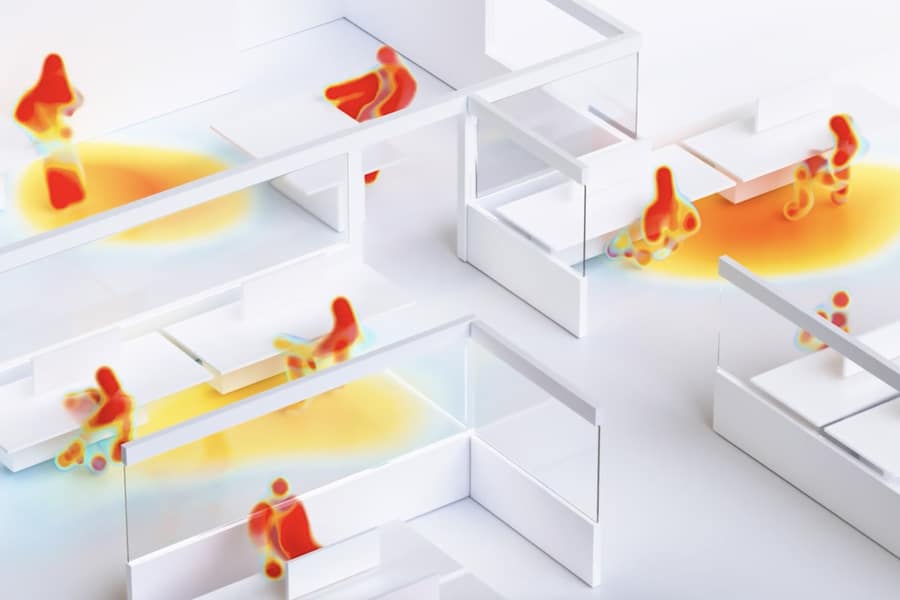Butlr, founded by former researchers from the MIT Media Lab, leverages thermal sensor data to enhance building safety and efficiency.

Understanding how people move through buildings can improve safety, efficiency, and sustainability—but constant surveillance is a major privacy concern. A startup founded by two former MIT Media Lab researchers, Butlr, has developed a groundbreaking alternative.
Butlr’s system uses low-resolution thermal sensors and AI-driven analytics to monitor movement in real-time without capturing personally identifiable details. This technology is already being used in senior living facilities, corporate offices, and large commercial spaces to detect falls, optimize energy use, and enhance workplace design.
Co-founded by Jiani Zeng SM ’20 and Honghao Deng, Butlr aims to revolutionize “responsive architecture.” Their sensors can track occupancy, adjust lighting and temperature, and even detect health issues like urinary tract infections in elderly populations. “We want buildings to respond to human needs without invading privacy,” says Deng.
The startup has already sold over 20,000 units to clients like Verizon, Netflix, and Microsoft. With funding from MIT’s E14 Fund and backing from Analog Devices founder Ray Stata, Butlr is expanding into healthcare, collaborating with Harvard Medical School and the University of Massachusetts on AI-assisted aging research.
Deng envisions Butlr becoming the “nerve cells” of smart buildings, ensuring safer, more efficient spaces while maintaining privacy. “The future of AI isn’t about watching people—it’s about understanding their needs in a way that respects their dignity,” he says.






